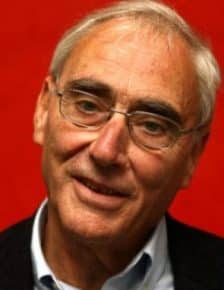
Pierre DOCKÈS
- Member Emeritus
- Le Cercle des économistes
Bio
Current positions Emeritus professor at the University of Lyon 2 Researcher at the Triangle laboratory (UMR CNRS). Positions occupied Professor Université Lumière Lyon 2,. He was named an honorary member of the European Society for the History of Economic Thought (ESHET) in 2014. He founded the “Centre Walras” (now the “Triangle” and he led this research centre until 2000), a research centre on the history of economic thought. He leads the team that publishes the complete works of Léon Walras. Education Faculty of Law and Economics Lyon Lyon Business School Aggregation in 1969 Books Medieval Slavery and Liberation, Chicago: A. from Chicago Press, 1982 The ambiguous story , Paris: PUF 1988 (with Bernard Rosier). Le Sucre et les Larmes. Bref essai d'histoire et de mondialisation , Paris: Descartes & Cie, 2009. Days of anger. The Spirit of Capitalism , with Francis Fukuyama, Marc Guillaume and Peter Sloterdijk: Paris: Descartes et Cie, 2009, 159 pp. (authors were awarded the “Special Turgot Prize” in 2010). Hobbes. Economy, terror and politics , Paris: Economica, 2008, 282 p. Hell is not others! Bref essai sur la mondialisation , Paris: Descartes & Cie, 2007, 156 p. (the author received the "prix du livre d'économie", awarded by the Senate on 24 November 2007.) Power and authority in economics , Paris: Economica, 2000. With Jean-Hervé Lorenzi, he was editor (and author) of Fin de monde ou sortie de crise , Perrin, 2009 and Le choc des populations: guerre ou paix , Perrin, 2010. Capitalism and its rhythm Facts, theories: four centuries in perspective. T. Je, Sous le regard des géants , Paris: Classiques Garnier, to be published in September 2016. Areas of economic expertise With Bernard Rosier, he tries to identify an «ambiguous» theory of history and studies economic rhythms (crises, long waves, cycles). During the 2000s, he worked on the role of power in the economy and on the relationship between innovations and conflicts, hence his reading of Thomas Hobbes, a power theorist who anticipates some contemporary theories. More recently, his work has focused on the sugar economy in a long historical perspective (from colonial slavery to contemporary forms of exploitation, commercialization and consumption) and he has written a small book where he tries to emphasize the potential of the French economy in globalization. He has just completed the first volume of a monumental book on the history of crises,
Talks
July 4
18:00






